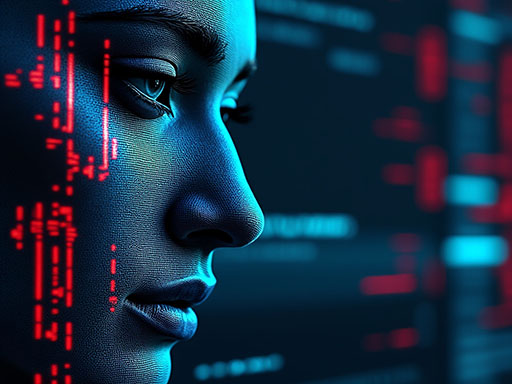A Privacy Advocate’s Perspective
Revealed in this exclusive report:
- Privacy Intrusion Unmasked: Discover how facial recognition extends beyond just stadium security.
- Fans Fight Back: The inside story of protests against invasive surveillance at sports venues.
- The Algorithm Bias Concern: Why the technology could be unfairly profiling fans.
- Secure Your Privacy: Learn how Incognito Browser shields your online activities from prying eyes.
- FREE Access: Get exclusive insights into how sports fans are pushing back against surveillance in stadiums.
The Growing Presence of Facial Recognition in Sports
On a bustling Wednesday evening, thousands of fans gathered outside Citi Field in Queens, New York, eagerly waiting to watch the Mets play against the Orioles.
Amidst the excitement, a group of protesters stood near the ticketing booth, distributing flyers to raise awareness about a new and controversial practice—facial recognition systems at major league sporting venues.
The MLB’s facial recognition program, known as Go-Ahead Entry, promises to save time and money by shortening lines at stadium entrances.
Fans can download the MLB Ballpark app, submit a selfie, and have their face matched at an in-person camera kiosk for express entry.
Six MLB teams, including the Philadelphia Phillies and San Francisco Giants, are already participating.

Privacy Concerns and Skepticism
While proponents argue that these systems enhance convenience, privacy advocates are not convinced. They worry about the security of these surveillance tools and their potential misuse.
Facial recognition technology can make it easier for law enforcement to gather information about fans and may lead to “mission creep,” where such surveillance becomes more pervasive or even mandatory.
Jeff Boehm, COO of Wicket—the company behind the Mets’ Entry Express program—claims that their use of biometric technology is responsible and secure.
He emphasizes that participation is entirely opt-in and that data is neither shared nor sold to third parties.
However, such assurances often fall short for those who have seen similar promises broken by big tech firms in the past.
A Personal Experience with Privacy
As someone deeply concerned about privacy, I’ve always been wary of technologies that collect personal data.
This skepticism led me to explore alternatives for my digital life. One such discovery was the Incognito Browser app.
Unlike mainstream browsers that often track your every move, Incognito Browser offers a more private browsing experience. It doesn’t store your browsing history or personal data, making it an excellent choice for those who value their privacy.
Comparing Browsers: Why Incognito Stands Out
When comparing Incognito Browser with major tech company browsers like Chrome or Safari, the differences are stark. Mainstream browsers often collect vast amounts of data under the guise of improving user experience.
This data is then used for targeted advertising or even handed over to authorities upon request. In contrast, Incognito Browser is designed with privacy as its core principle. It ensures that your online activities remain confidential and secure.
The Wider Implications of Surveillance
The use of facial recognition technology in stadiums is just one example of how surveillance is creeping into various aspects of our lives.
The National Football League (NFL) has also started using Wicket’s facial recognition for express entry, though currently limited to team personnel and media.
However, confusion and concern among fans indicate a broader apprehension about where this technology might lead.
At Citi Field, the Mets Entry Express Line saw minimal use—perhaps five people every five minutes—while traditional security lines moved efficiently.
This raises questions about whether the perceived benefits of facial recognition truly outweigh the privacy risks.
A Call to Action
As we navigate an increasingly digital world, it’s crucial to remain vigilant about our privacy. Technologies like facial recognition may offer convenience but at what cost?
By choosing tools like Incognito Browser for our online activities, we can take a stand against unnecessary surveillance and protect our personal information.
While facial recognition technology continues to spread across sports venues, it’s essential to question its implications on our privacy.
As fans and consumers, we have the power to demand greater transparency and control over our data. And in our digital lives, opting for privacy-focused tools like Incognito Browser can make a significant difference in safeguarding our personal information.



